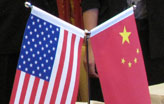Editorials
A new era of space travel
Updated: 2011-07-22 07:40
(China Daily)
With its undercarriage safely touched down at Kennedy Space Center in Florida on Thursday, Atlantis - the last space shuttle of the National Aeronautics and Space Administration (NASA) - completed its final mission, signaling the end of the shuttle era.
In 30 years, the shuttle program created numerous firsts in science and technology and established a number of milestones in the history of manned spaceflight, although there were, too, unexpected tragedies that at one time undermined people's confidence. On Jan 28, 1986, space shuttle Challenger broke up 73 seconds after launch, killing all seven crew members. On Feb 1, 2003, shuttle Columbia disintegrated upon re-entering the Earth's atmosphere, killing its crew of seven.
Considered the most advanced and versatile flying machine ever built, the shuttle was the epitome of human ingenuity, as well as a symbol of US superiority in manned spaceflight. However, extremely high costs, unreliability and budget cuts led to the end of the program.
The end of the shuttle era might be seen as a turning point for US manned spaceflight. With no replacement available, the United States will have to rely on Russian rockets to get to the International Space Station until its private companies develop new rockets and spacecraft able to transport humans and cargo to space safely and economically.
The shuttle program can be terminated, but humanity's space adventure will go on. The Obama administration has unveiled a bold plan to send US astronauts to Mars in the next three decades. Moreover, it is gratifying to see more emerging economies joining the ranks of spaceflight powers and achieving remarkable progress in space exploration.
It is the human craving for knowledge of the unknown that makes our dreams come true. However, history shows how the acquisitive instinct of human nature, if unchecked, can lead to conflicts on Earth, which no country wants to repeat in space.
It is important to note that the Space Shuttle and other US programs were created during the height of the Cold War, when the US was competing with the Soviet Union on land and sea, in the air and in space. Today, as more latecomers join the space club, the US is sparing no efforts, as ever, to maintain its supremacy.
Competition in terms of spaceflight tremendously stimulated technological innovation, but the high-tech dominance of the US and excessive competition, including an arms race in space, are inadvisable. All nations should join hands in working out ways to explore outer space for the sake of the peaceful coexistence of mankind.
(China Daily 07/22/2011 page8)

Specials

China-US Governors Forum
The first China-US Governors Forum is held July 15 in the Salt Lake City, the United States.

My China story
Foreign readers are invited to share your China stories.

Rare earths export quota
China kept its export quota at almost the same level as last year.